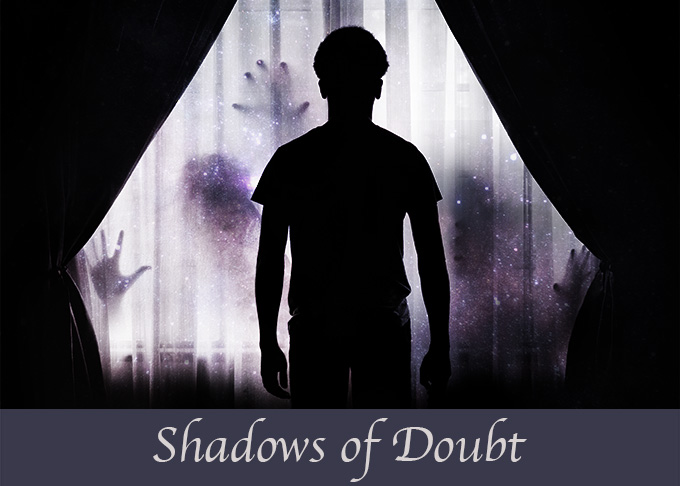Shadows of Doubt
In the creative world, everyone feels doubt, not just the beginners. Big players like Neil Gaimon, Stephen King—even Mister-freaking-Rogers himself, Fred Rogers—have gone on record saying that there have been times from even the height of their success that they felt like imposters.
In my final exploration of lessons learned from Won’t You Be My Neighbor? (see parts one and two), I’d like to discuss a letter Fred Rogers wrote when he was preparing to return to Mister Rogers Neighborhood after it being off the air for a few years—AFTER HE WAS ALREADY A SUCCESS:
Am I kidding myself that I’m able to write a script again? Am I really just whistling Dixie? I wonder. If I don’t get down to it, I’ll never really know. Why don’t I trust myself? After all these years, it’s just as bad as ever. The hour cometh and now is when I’ve got to do it. Get to it, Fred, get to it! But don’t anybody ever tell anybody else that it was easy. It wasn’t.
-Fred Rogers
If Mister Rogers, someone we all grew up admiring, someone who seemed to have it all together and who embodied the character he played, found it difficult to do his life’s work, what hope is there for the rest of us?
I think this is proof-positive that there, in fact, ISN’T hope for the rest of us. There will never—and perhaps should never—be a time in which we feel satisfied in our knowledge and control over our craft. Why “should never,” though? Because once we feel we are the best there is, competent and worthy, perhaps we’ll stop learning.
Perhaps we’ll stop growing, and that time will be the death of our art. Perhaps we need to be in a state of unrest and desire in order to continue to push through our insecurities and create. Perhaps that’s the secret to artistic genius: always pushing to convince not only others but yourself that you’re good enough, so you rise to previously unknown heights. Your craft rises to something new and exciting, something transformative. And who doesn’t want that?
The other side to that equation is that if you’re not always pushing, people may give up on you. Art is essential to the human condition, yes, but people aren’t required to ingest YOUR art. There is plenty to choose from, so if you rest on your laurels and produce half-arsed material, then what is to stop them from going to the next up-and-comer with a thirst to prove herself?
I think we need this dissatisfaction in ourselves and our art in order to create the best we can, strive for the best expression of the beauty in our minds. It’s only when that dissatisfaction turns to crippling fear and doubt that there is a problem. You want that doubt to inspire you, to drive you—not to keep you from creating altogether.
How do we do that, you might ask? I’m not entirely sure, but for me it involves telling my inner critic to go away right now, thank you, I’m trying to create. I’ll talk with you later. Drive her from my mind and just get down to the work. In the end, the work is what matters, and your opinion of it won’t count one lick. It’s what other people receive from it that makes all the difference in the world.
So, be a Neil Gaiman, a Stephen King, and most definitely a Fred Rogers, and do the thing you were meant to do DESPITE the doubt and fear you feel. Do it anyway, and see what brilliance you can achieve when you put your heart and mind to something special.


